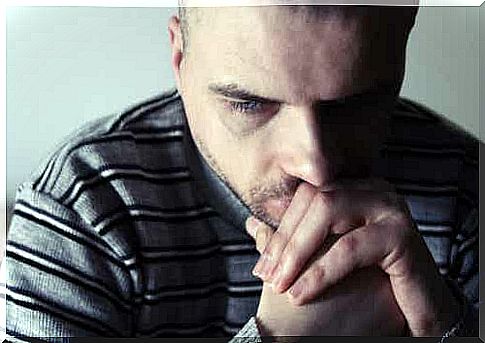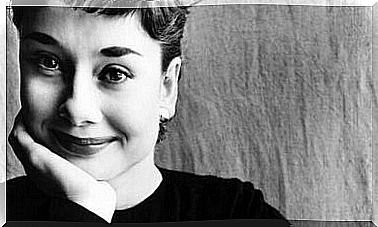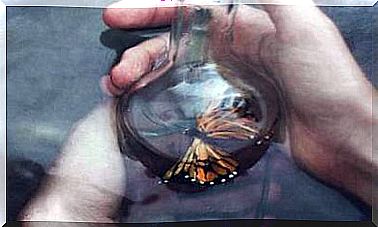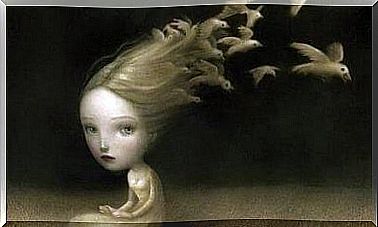The Impact A Difficult Childhood Has On Relationships In Adulthood

Insecurity, affective addiction, low self-esteem, abusive attachments. With so many factors at play, it is not easy to determine the impact a difficult childhood can have on people’s later relationships. In fact, psychologists have been studying this topic for many years. Everyone is an individual. Therefore, the consequences of a childhood full of mistreatment, abuse or lack of affection are very different from person to person.
Still, most of these cases are based on one thing : the shadow of post-traumatic stress disorder (PTSD). You should keep in mind that every childhood experience is hugely important to emotional development. Everything you experience at a young age forms the basis of your psychological well-being and your spiritual vulnerability.
As Agatha Christie once said so aptly, “I think one of the happiest things that can happen to you is to have a happy childhood” . Unfortunately, this is not always the case. Believe it or not, many people had difficult childhoods . They carry a past full of shards and open wounds that continues to determine their present adult life.
The impact a difficult childhood can have on adult relationships
Childhood trauma is far more common than many people suspect. The University of Zurich , the University of Vermont and the Virginia Commonwealth University carried out a joint study. The researchers concluded that about 60 percent of the participating children had experienced a traumatic event in childhood.
This number is undoubtedly very high. However, it is important to take into account the wide variability in the traumatic experiences children may experience in the first few years of life. For example, being abandoned by a parent or the death of a loved one. Some children witness or become victims of domestic violence, abuse and / or psychological violence. Some of them do not receive enough attention and care or become victims of bullying.
In addition, it was also pointed out in this study that a difficult childhood casts a long and complicated shadow over all of human life. As a result, these people are also at risk of suffering from various mental disorders, and many sufferers have difficulty developing relationships with others.
If you want to know what effects a difficult childhood and childhood trauma have on relationships in adulthood, then you should definitely read on!

Identity development problems
The foundations of an individual’s identity develop in childhood and adolescence. Although this development continues into adulthood, it is still very important to build and consolidate solid pillars for this in childhood. A decisive factor is trust in yourself and in other people. You learn this basic trust in your environment. Especially through the people who represent a secure and reliable bond for you.
But if a person feels permanently rejected and threatened, this has lasting effects on the brain development of the person concerned. This is because feelings of fear often prevent you from building a confident, strong, and optimistic identity. All of this will make it much more difficult to build quality relationships in adulthood. Because those affected often do not even know exactly what they actually want.
A feeling of emptiness that no one can fill and destructive relationships
The effects that a traumatic childhood has on relationships in adulthood can be described in terms of a very common sensation among those affected: a pronounced feeling of inner emptiness. Often times, people who have had a difficult childhood feel that everything is somehow wrong when they grow up. You feel empty and you don’t know why. Therefore, almost without realizing it, they look for other people to satisfy this longing. These people should fill in the gaps left by their own traumatic childhood.
Because of this, it is also very difficult for these people to develop solid and satisfactory relationships. Very often they expect practically everything from others. And in the end, they get frustrated and hurt when those expectations are not met. In addition, people who have had traumatic experiences in their childhood often develop destructive relationships themselves in adulthood. As unlikely as this may sound. Many sufferers tolerate manipulation, deception, and toxic relationships or friendships just to have someone around. Everything to fill this emotional void, everything to feel less alone.
Difficult childhood and attachment disorders
One of the consequences a traumatic and difficult childhood can have is changes in the attachment process. You already know that it is healthy to develop mature and secure bonds that will enable you to love fearlessly and freely.
If someone goes through traumatic experiences in their childhood, they are likely to have difficulty developing healthy affective bonds as a result. As a result, the following dynamics typically occur:
- Avoidant or Unsafe Attachments. In this case, the person concerned prefers their own independence in order not to be hurt again. If he or she does enter into a relationship, those bonds will always be marked and impaired by a lack of trust, an inability to fully open up to the other, and an inability to fully love.
- Anxious attachments. They are the opposite of avoidant ties. In this case, there is a great need to bond with the other. However, the dependency of the person on the other is so great that he or she, instead of being happy, constantly feels fear. Fear that the other will leave him or her or stop loving the partner.

How does a difficult childhood affect relationships in adulthood?
All children want their parents to love and take care of them. In many cases, children do everything to please their parents, make them proud, and get their attention. Little by little they create such a false self that just wants to be valued and loved. Over time, they internalize this role so much that they use and accept it in almost any situation.
As a result, they adopt toxic behaviors to make friends, be visible to others, and get their partner to love them in a way their parents didn’t. Although this “false self” can even function at times, you should know that there will come a day when the “authentic self” will scream loudly and unmistakably for help. Deep down, those affected experience great anger, frustration, fears and deep sadness. And these suppressed and hidden emotions will sooner or later make themselves felt in one way or another and come to the surface.
In short, if you’re wondering how a difficult childhood affects adult relationships, the answer can be summed up in one word: unhappiness. It is not easy to function as an adult when you have a wounded child who has not been properly cared for. Hence, you need to work on this trauma to move forward and achieve balance and wellbeing.









